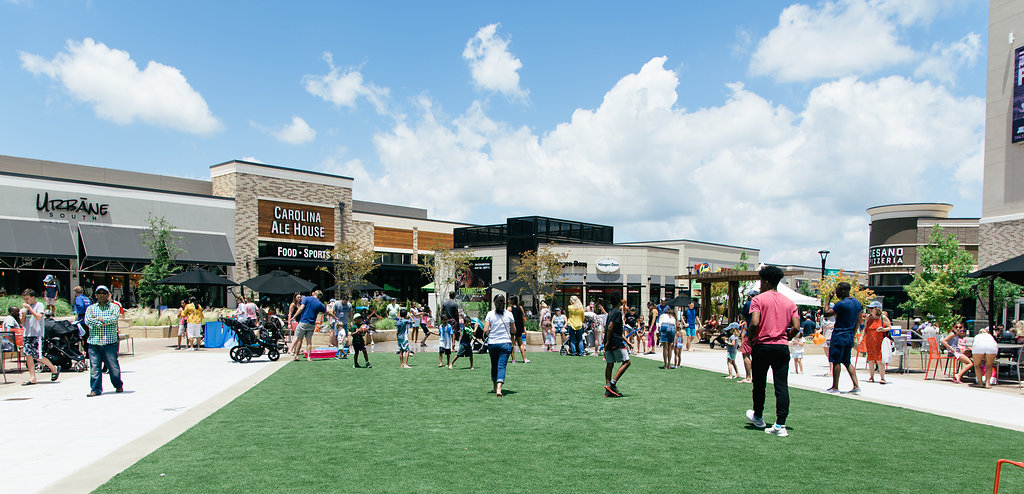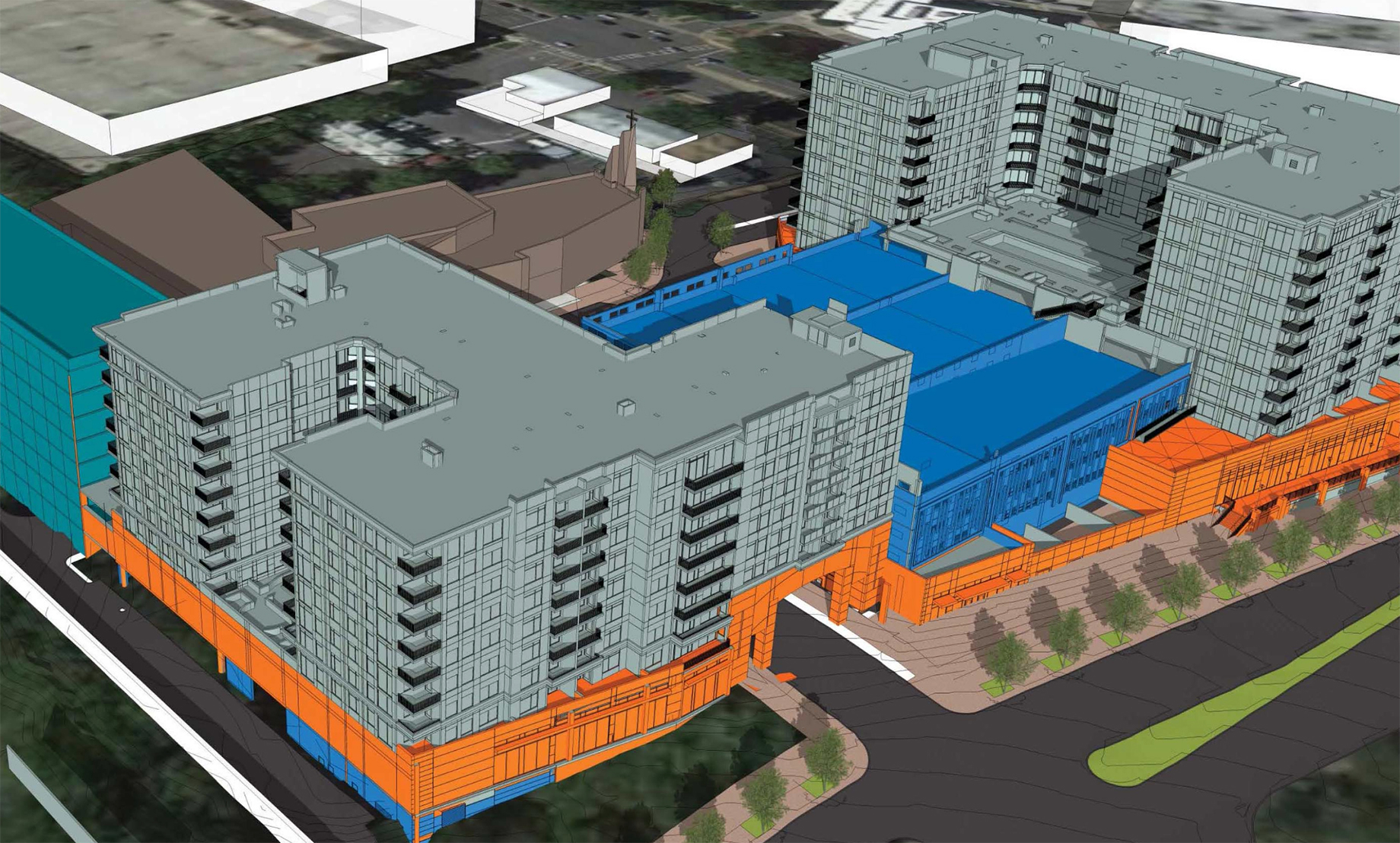When Charlotte, N.C., failed to get the coveted nod as site of Amazon.com’s second headquarters last year, its municipal and business leaders were far from devastated.
As the state’s most populous city, Charlotte consistently ranks among the fastest-growing large cities in the U.S. — thanks in part to an influx of Millennials drawn to the market's educational and job opportunities, quality of life and relatively low cost of living. And with an estimated 2.4 million people in its metro area currently, Charlotte may actually take the top slot over the next decade or so, according to United Nations projections. Its rapidly increasing talent pool has helped make it a business magnet, and this may explain, in part, why locals tended to take Amazon’s decision to go elsewhere in stride.
“Most of us were not concerned," said R. Christopher Thomas, a retail partner at Childress Klein, a commercial real estate firm based in both Charlotte and Atlanta. "We’re confident that we’ve shown our mettle. Because of Charlotte’s prominence as a regional banking center, the importance of its airport and its strategic location in the middle of the Carolinas, Charlotte has continued to benefit from corporate relocations."
“During the past five years, the Charlotte metro area has added some 204,000 jobs overall”
Last year a wave of companies announced plans to move their headquarters to Charlotte or to expand their headcounts there — moves reportedly eased by incentives from local and state governments. Honeywell is among the businesses that plan to relocate to Charlotte. That move by the Fortune 500 company is expected to bring about 500 jobs to Charlotte over the next five years.
Even though Amazon ultimately decided to split its new headquarters offices between New York City and Northern Virginia, however, the e-commerce giant is nevertheless making a major investment in Charlotte. Last year the Charlotte Regional Business Alliance announced that Amazon had finalized its commitment to open a distribution center on 100 acres north of the Charlotte Douglas International Airport, reportedly the sixth-busiest airport in the world. The facility is expected to create about 1,500 jobs and to generate some $200 million in capital investment.
To be sure, Charlotte has long been a regional banking center, but it is also a burgeoning tech hub. The city’s flourishing pool of tech workers now accounts for nearly 5 percent of the employment base, versus a national average of 3.5 percent, according to a CBRE report.
Over the past five years, the Charlotte metro area has added about 204,000 jobs overall, notes Katherine Southard, a locally based CBRE senior associate. Last November the city’s unemployment rate was only 3.2 percent. “With this significant increase in employment comes a corresponding increase in population, creating an appetite for diverse and expanded retail options,” said Southard. Indeed, vibrant economic expansion, population growth, solid retail-leasing dynamics and strong investment returns have combined to make Charlotte one of the most sought-after retail markets in the Southeast, CBRE research says.
“The growth in Charlotte is in almost every direction”
Like other large cities, Charlotte has seen a proliferation of restaurant concepts. But it has also experienced what some local publications have dubbed a grocery war. Harris Teeter, based in the Charlotte suburb of Matthews, has long been a market leader in the higher-end grocery category. Sprouts opened its first Charlotte store last year, and Publix and European chain Lidl have both expanded their presence in Charlotte — which is also served by Whole Foods and Trader Joe’s. Grocery chains are driving many of the larger retail projects in the market, CBRE says.
Development is taking place throughout Charlotte, in both urban and suburban locations, according to CBRE, which reports that the city’s expanding multifamily or apartment market has created new retail opportunities in many in-fill locations. In the downtown market, there are about a dozen high-rise apartment buildings being planned for between now and 2020, according to published reports.
“The growth in Charlotte is in almost every direction,” said Jill Ecuyer, a senior associate at Crossman & Co., which was slated to open its first Charlotte office in February. Crossman, one of the largest retail leasing, property management and investment-sales firms in the Southeast, decided to open an office in Charlotte to meet client demand. The company now has six offices throughout the Southeast. “We are here to serve our clients’ real estate needs now and into the future as they expand with development projects and acquisitions in the Carolinas and Virginia,” said Ecuyer.

Childress Klein teamed up with Charlotte-based Crosland Southeast on the $300 million Waverly
Transportation infrastructure projects have helped to ensure that growth has been spread fairly evenly throughout the Charlotte market. The newly constructed Monroe Bypass (the region’s very first toll road), the completion of Interstate 485 and some new light-rail lines are among the projects that have changed both traffic and shopping patterns.
In the affluent South Charlotte market, Childress Klein and Charlotte-based Crosland Southeast recently completed the $300 million Waverly mixed-use project, on a 90-acre site south of I-485, which encircles the city. The pedestrian-friendly master-planned development features two class-A medical office buildings, two class-A office buildings, a 140-room Hilton Garden Inn and some 225,000 square feet of retail space, anchored by a Whole Foods store. Waverly also offers 375 apartments and 140 single-family homes, built by other developers.
“Waverly was a special opportunity, because it was developed on 90 acres held by a legacy landowner who had been patient when development occurred around his property,” said Thomas. “It was the proverbial hole in the donut.” Childress Klein remains bullish on the Charlotte market, Thomas says, where it is currently developing a vertical mixed-use project in the affluent SouthPark neighborhood, about five miles south of the city center.

Apex SouthPark will consist of 90,000 square feet of retail space at the base of upscale apartment buildings
Apex SouthPark, as the project is called, is slated for completion sometime in the spring of 2020 and will consist of 90,000 square feet of retail space at the base of upscale apartment buildings. It will feature a 175-room Hyatt Centric hotel and the new home of SouthPark Church, which sold the seven-acre project site to Childress Klein. The site sits just across Sharon Road from the upscale SouthPark mall, one of the largest malls in the Southeast. Childress Klein is at work with Ascentris, a Denver-based real estate private equity firm, on that project.
“We’re very bullish on what’s to come for Charlotte,” said Thomas. The market is well-positioned to withstand any slowdown, he asserts, because of its strong employment base, among other desirable attributes.
Indeed, Charlotte’s vacancy and availability rates are projected to remain firmly in the single digits over the next two years, according to CBRE. Right now, many of Charlotte’s landlords find themselves in the enviable position of being “able to call the shots” when it comes to leasing retail space, according to Southard. “Landlords are receiving multiple offers,” she said, “and are able to make sure they have the right mix of tenants in a center so that it thrives.”
By Anna Robaton
Contributor, Commerce + Communities Today


